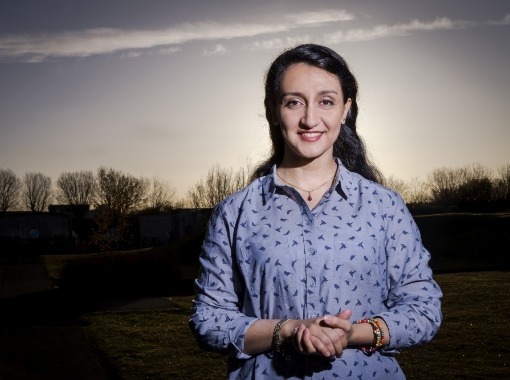Doctoral defence in Civil Engineering - Saharalsadat Rahpeyma

Aðalbygging
The Aula
Ph.D. student: Saharalsadat Rahpeyma
Dissertation title: Analysis and modeling of earthquake strong-motion site effects on Icelandic arrays for earthquake engineering applications
Opponents: Dr. John Douglas, Chancellor’s Fellow (Lecturer), University of Strathclyde, Glasgow, Scotland.
Dr. Dominik H. Lang, Director of Natural Hazards, Norwegian Geotechnical Institute, Oslo, Norway.
Advisor: Dr. Benedikt Halldórsson, Research Professor at the Faculty of Civil and Environmental Engineering at the University of Iceland and Director of Research at the Earthquake Engineering Research Centre, also a Specialist at the Division of processing and research, Icelandic Meteorological Office, Reykjavík, Iceland.
Doctoral committee:
Dr. Sigurjón Jónsson, Professor, Physical Science and Engineering Division, King Abdullah University of Science and Technology, Thuwal, Saudi Arabia.
Dr. Russell A. Green, Professor,The Charles E. Via, Jr. Department of Civil & Environmental Engineering, Virginia Polytechnic Institute and State University, Blacksburg, VA, USA.
Dr. Birgir Hrafnkelsson, Professor, Faculty of Physical Sciences, University of Iceland
Chair of Ceremony: Dr. Guðmundur Freyr Úlfarsson, Professor and the Head of the Faculty of Civil and Environmental Engineering, University of Iceland
Abstract:
A comprehensive site-effect investigation framework was developed and applied to earthquake strong-motion data collected on small-aperture urban arrays, the ICEARRAY I in Hveragerði in the South Iceland Seismic Zone and ICEARRAY II in Húsavík in the Tjörnes Fracture Zone in the north, where considerable variations over short distances in ground motion amplitudes have routinely been observed. Through the Horizontal-to-Vertical Spectral Ratio and Standard Spectral Ratio methods the amplification levels were shown to remain relatively low on lava-rock, but predominant frequencies of resonance were found that vary systematically and correlate with the local soil structure and geological units. For stations on lava-rock characterized by one or more velocity reversals due to softer sedimentary layers at depth, modeling the soil structure as a two-degree-of-freedom dynamic system captures the observed predominant frequencies. For non-reversal sites, an inversion procedure for the velocity profile based on Bayesian statistical theory was developed. Furthermore, a versatile Bayesian Hierarchical Model (BHM) was developed and applied to peak ground acceleration data, quantifying the contribution of earthquake source, wave propagation and local geological effects to PGA variations. This study thus improves the modeling of site effects in Iceland, quantifies the uncertainties of physical parameters of the subsoil through a Bayesian inversion technique, and through the new BHM shows that for ICEARRAY I the earthquake effect dominates the variability while for ICEARRAY II, the site effects are dominating. The results of this study thus facilitate our understanding of local ground motions and have practical implications for urban planning and seismic hazard assessment.
About the doctoral candidate:
Sahar Rahpeyma holds a B.S. degree in Civil Engineering (2009) and a M.S. degree (2012, with honors) in earthquake engineering from Arak University, Iran. Subsequently she taught undergraduate courses and co-advised on Masters projects at Arak University, and published her research in international scientific journals. She started her Ph.D. studies in earthquake engineering at the University of Iceland in 2014 as a part of a Project of Excellence funded by the Icelandic Centre for Research. During her doctoral research she has taken advanced courses in Bayesian statistics at the University of Iceland and earthquake engineering at the University of Patras, Greece. She has published four journal papers and five peer-reviewed papers at World and European conferences in earthquake engineering, in addition to numerous presentations and posters. She received the Seismological Society of America Annual Meeting student travel grant in 2016, a one-year Eimskip doctoral grant from the University of Iceland Research Fund in 2017, and Erasmus+ exchange study and traineeship grants in 2015 and 2017, for research exchange at the University of Patras, Greece, and Norsar, Norway.
Saharalsadat Rahpeyma



